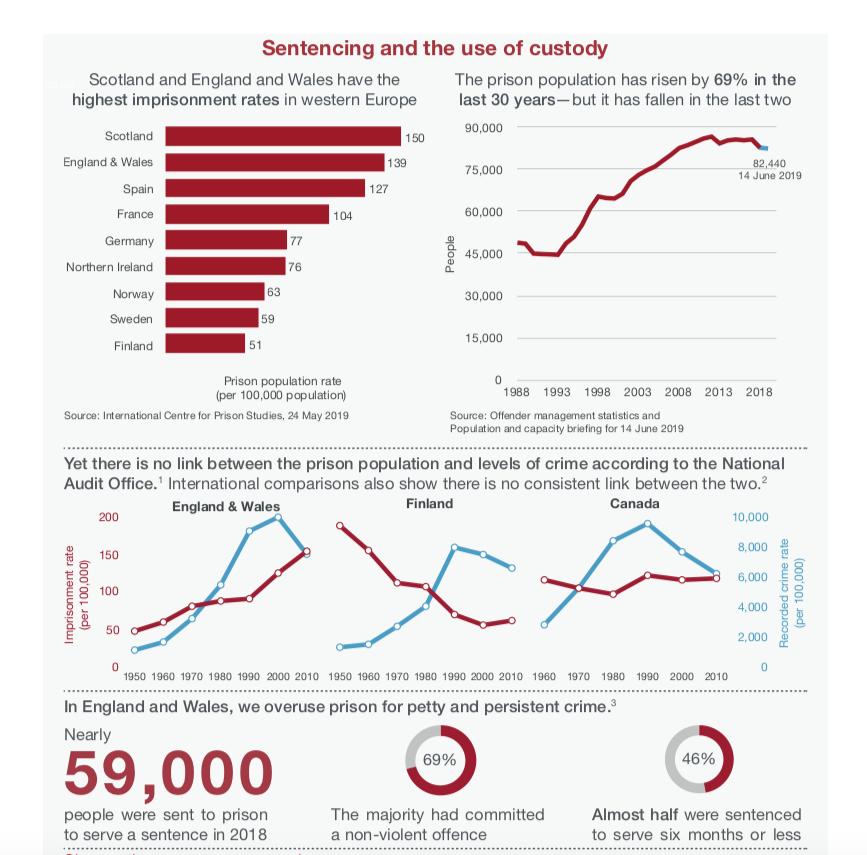England and Wales has the highest imprisonment rate in western Europe with more than 140,000 admissions last year, according to a new report published yesterday. The Prison Reform Trust charts the ‘shameful’ rise in custody numbers over the last three decades with the prison population presently at more than 82,400 in England and Wales. You can read the report here.
The report found that in England and Wales 139 in every 100,000 people are being imprisoned. This rate is almost twice as high as Germany, a country that has a significantly larger national population and nearly triple that of Finland. England and Wales also have the highest number of indeterminate prisoners (9,441) in western Europe which is more than Germany, Russia, Italy, Poland, Netherlands and Scandinavia combined.
‘These figures show the scale of the challenge that we face in breaking our addiction to imprisonment,’ commented Peter Dawson, director of the Prison Reform Trust. ‘Planned measures to limit the use of short sentences, and correcting failed reforms to probation are both steps in the right direction. But our shamefully high prison population rates won’t be solved by these alone—a public debate about how we punish the most serious crime is overdue.’
According to the group, we overuse prison for petty and persistent crime and, last year, nearly 59,000 people were sent to prison, the majority having committed non-violent offences and less than half (46%) were sentenced to serve six months or less.
The report also reveals the growing use of long-term sentences. More than two and a half times as many people were sentenced to 10 years or more in 2018 than in 2006. For serious indictable offences, the average prison sentence is now 58.3 months, over two years longer than in 2006. According to a 2013 report by prison and probation inspectors into life sentences, such numbers are likely to increase as judges are imposing substantially longer tariff periods with the average minimum term for murder having risen from 12.5 years in 2003 to 21.3 years in 2016.
However, despite the rise in sentencing and use of custody, only one in 10 people surveyed said that having more people in prison was the most effective way to deal with crime. Early intervention, such as better parenting, discipline in schools and better rehabilitation, were all rated as more effective responses.
According to the report, almost half of adults (48%) are reconvicted of another offence within one year of release from custody. The rates are even higher for those serving sentences of less than 12 months with close to two thirds (64%) reoffending, as compared to the 56% and 54% serving community orders and suspended sentences respectively. Despite this, the use of community sentences has more than halved in the last decade and the imposition of suspended sentences has fallen since 2017.
The report states that 81 out of 120 prisons in England and Wales are overcrowded.







